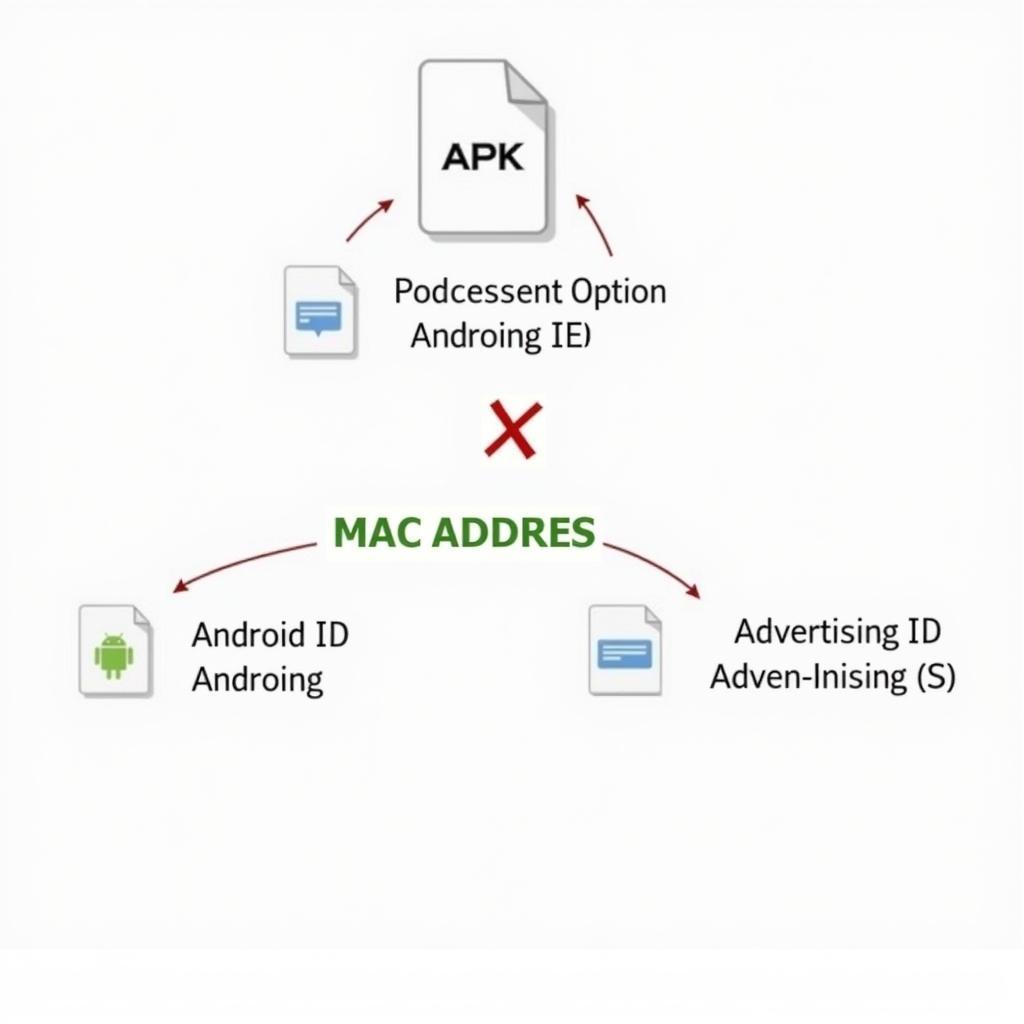Understanding the relationship between APKs (Android Package Kits) and MAC addresses is crucial for Android developers and users alike. While APKs themselves don’t directly “see” MAC addresses in the way some might think, there are nuances to this interaction that are worth exploring. This article delves into the connection between APKs and MAC addresses, clarifying how they interact and addressing common misconceptions.
How APKs Interact with Device Information
APKs, the installation files for Android apps, can access certain device information, but their interaction with MAC addresses is limited. An app installed from an APK can access a device’s unique identifiers, but due to privacy concerns, direct access to the MAC address has been restricted since Android 6.0 (Marshmallow). Instead, apps can use other identifiers, such as the Android Advertising ID, which is user-resettable and provides a more privacy-preserving approach to tracking.
Why the Limited Access to MAC Addresses?
Restricting direct access to the MAC address enhances user privacy. MAC addresses are permanent and could be used to track a device’s location and online activity without the user’s knowledge or consent. By limiting access, Android provides a more secure environment for its users.
 APK Accessing Device Information
APK Accessing Device Information
The Role of Permissions in Data Access
Android apps require specific permissions to access device information. Even before the restrictions on MAC address access, apps needed to declare the necessary permission in their manifest file. This transparent approach allows users to see what data an app requests access to and make informed decisions about installation.
Understanding Common Permissions
Permissions related to network access, such as ACCESS_NETWORK_STATE and ACCESS_WIFI_STATE, allow apps to gather information about the network connection, but not the MAC address itself. These permissions are necessary for many apps to function correctly, but they don’t grant access to sensitive identifiers like the MAC address.
Alternative Identifiers and Their Uses
With direct MAC address access restricted, developers have turned to alternative identifiers for various purposes, including analytics and advertising. The Android Advertising ID, for example, provides a unique, user-resettable identifier that can be used for targeted advertising without compromising user privacy.
The Benefits of Using Alternative Identifiers
Alternative identifiers offer a balance between functionality and privacy. They allow developers to gather necessary data for app improvement and targeted advertising while giving users more control over their privacy.
apk 看 mac address: Addressing Misconceptions
The search query “Apk 看 Mac Address” (apk see MAC address) suggests a desire to use an APK to directly view a device’s MAC address. While this might have been possible in older Android versions, it’s no longer feasible due to the privacy restrictions implemented since Android 6.0. It’s crucial to understand these limitations and utilize alternative, privacy-preserving methods.
Best Practices for Handling Device Identifiers
Developers should prioritize user privacy when working with device identifiers. Using alternative identifiers like the Advertising ID and adhering to best practices for data security are crucial for building trust and maintaining user confidence.
Conclusion
While the idea of an “apk 看 mac address” might seem straightforward, the reality is more nuanced. Understanding the restrictions on MAC address access and the reasons behind them is essential for both developers and users. By embracing alternative identifiers and prioritizing user privacy, we can create a more secure and trustworthy Android ecosystem. Remember, using appropriate methods for accessing device information ensures both functionality and respect for user privacy.
FAQ
- Can APKs directly access MAC addresses on modern Android devices? No, direct access is restricted since Android 6.0.
- Why is MAC address access restricted? To protect user privacy and prevent unauthorized tracking.
- What are alternative identifiers to MAC addresses? The Android Advertising ID is a common alternative.
- How can users manage app permissions? Through the Android settings menu, users can control which permissions each app has.
- What are the implications of accessing device identifiers irresponsibly? It can lead to privacy breaches and erode user trust.
- How can developers access device information responsibly? By using alternative identifiers and adhering to best practices for data privacy.
- What is the importance of understanding the connection between APKs and MAC addresses? It helps developers build privacy-conscious apps and informs users about data access.
Need further assistance? Contact us: Phone: 0977693168, Email: [email protected] or visit our office at 219 Đồng Đăng, Việt Hưng, Hạ Long, Quảng Ninh 200000, Việt Nam. We have a 24/7 customer support team ready to help.